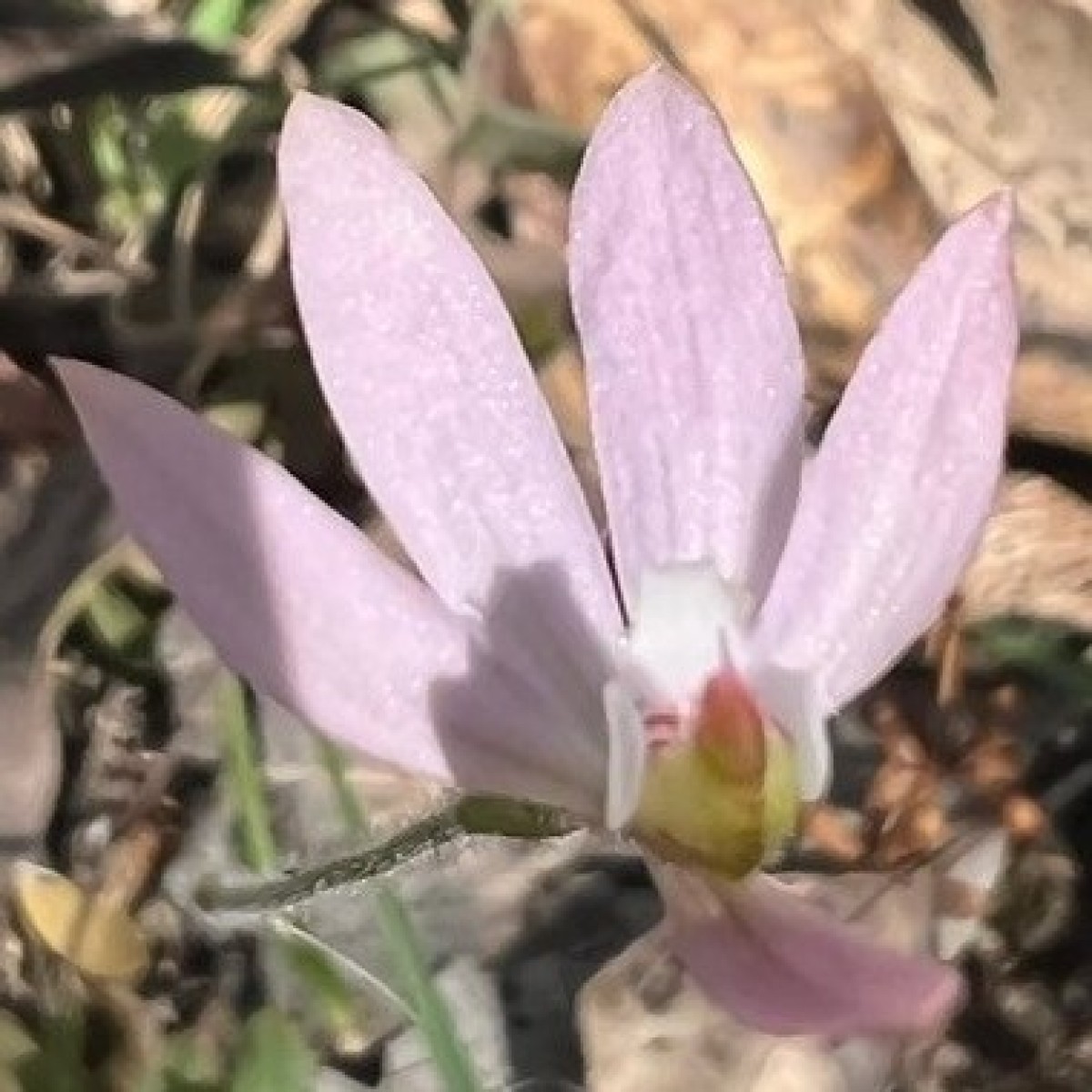Green Hooded Orchid
A new partnership project has developed between Granite Borders Landcare and the Department of Climate Change, Energy, the Environment and Water (DCCEEW) thanks to the plant conservation activities of some of our GBLC members!
Staff and members of GBLC were invited to do a native vegetation survey of a local property, by a local landholder and GBLC member. One unexpected outcome of this was the identification of the Green Hooded Orchid (Pterostylis gibbosa). When the landholder uploaded this to the PlantNet app. it set heads a nodding down in the big smoke and Dr Beth Mott from DCCEEW rang to see if we could coordinate some surveys of the plants. Apparently they are rare up here in the Northern Tablelands and may evidence Indigenous routes of travel in the past. This volunteer citizen research has resulted in a small grant towards more rigorous orchid surveys, to be coordinated by Granite Borders Landcare.
One recent survey by our team found over 300 of the P. gibbosa plants, in 39 different locations on the one property!
These surveys are season-dependent and currently, Dr Mott (Senior Threatened Species Officer, DCCEEW) is after an idea of rosette numbers and spread on this one property. There may be more work along these lines in the future, as the hooded orchids start to flower and more is known of the extent of the orchid establishment. The surveys will take place between the final two weeks of July and the beginning of August, when representatives from DCCEEW will join us and direct the survey methodology. This will be a great opportunity to input into the protection and knowledge building around a specific plant species.
The project also includes the purchase and demonstration of a mobile pig trap yard (as demonstrated this year at an LLS workshop), in order to protect the orchid rosettes, which also turn the heads of local pig populations.
In addition to providing a small, short term but meaningful research project protecting native plants in Tenterfield, the project provides for unique ways to support our members’ conservation efforts while also building relationships with government research bodies.
Go GBLC!

